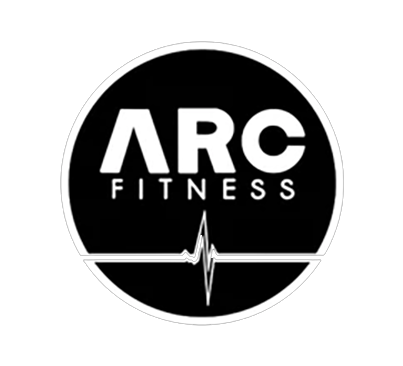No products in the basket.
Arc Fitness, Uncategorized
One Size Fits All Recovery?
One Size Fits All Recovery?
There are more choices today of paths to recovery than ever. These have all been driven by traditional approaches; tried and tested results, scientific research; but most importantly – individual preferences.
We are all unique, have experienced different things and developed our own view of the world. Sometimes when it comes to recovery we have been trying to – squeeze square pegs into round holes.
Despite our individuality the common denominator in our recovery is the need to changing one’s self, understanding that you cannot keep doing the same thing and expecting different results.
Someone once said to me;
“There are many roads to Dublin, whatever you choose, you will still get there. Just with different scenery.”
During my own recovery and interactions with those trying to navigate this thing, I became increasingly aware of the various ‘roads’ people have chosen to gain long term recovery. There is no right or wrong way to choose recovery; everyone is traveling on a different journey looking for the same result.
However, what I do know is that without using some ‘road’ – you will fail.
You need to be working programme of some kind that creates a happier life than your life in active addiction produced. Today’s recovery choices include:
12-step-based recovery.
SMART Recovery.
Social, Community & Peer recovery support services.
Clinical treatment.
These programmes are pretty diverse in their approaches and methods of living a life in recovery, however, the end goal is the same – eliciting change.
12 Step Approaches
Alcoholics Anonymous began in 1935 and was the first widely used program of its kind, therefore accepted as the best way to recover. The most popular of these programmes include Alcoholics Anonymous, Narcotics Anonymous, and various other “anonymous” programs, specifically tailored to other substances of choice. This design specifically relies on two things:
1: A God of your own understanding (of your own understanding is important – this can be a real barrier for people entering the programme).
2:The experience of others that have achieved this goal by working the suggested steps.
The programs provide a structured ‘STEP’ design for living that ensures, if followed to the best of one’s ability, it offers a break from the obsession to drink or use drugs.
SMART Recovery
SMART stands for self-management and recovery training. This program is undertaken directly by the individual and can also include self-run groups by trained facilitators that focuses on behaviour changes. Its 4 areas of focus include:
Building and Maintaining Motivation.
Coping with Urges.
Managing Thoughts, Feelings and Behaviors.
Living a Balanced life.
This program uses similar techniques as twelve-step programs, but without the spirituality and in-person social aspect (unless you attend SMART recovery meetings). There are SMART Recovery meetings in some areas, but they are nowhere near as prevalent as Alcoholics and Narcotics Anonymous meetings. SMART Recovery does offer 24/7 online support, meeting opportunities, and plenty of self-guided worksheets.
Social, Community & Peer recovery support services (ARC Fitness)
Social, community & Peer recovery support services are becoming increasingly popular. These services are run by sober coaches, recovery coaches, life coaches, and other supportive, non-clinical individuals. ARC Fitness is different however, because we add to this mix a team with Professional experiences – addiction counselling, mental health nursing, psychotherapy.
These services approach each person in a non-judgmental accepting way and respect their individual journey. At ARC Fitness we believe that each person has their own answers and it is our job as coaches to ask the right questions that allow that person to arrive at the answers. We also through a lot of physical activity into the mix too.
The introduction of ‘community’ is essential within this approach as it alleviates the disconnection that addiction creates underpinning the belief that we do not recover in isolation.
Some objections to this style of recovery might be that these services sometimes cost money and that they might not provide enough structure for those that prefer stricter guidance.
Clinical Treatment
Clinical treatment services are conducted by certified or licensed professionals and includes things like:
Residential treatment.
Hospital Detox programmes.
Outpatient programs.
Individual therapy.
These services can be undertaken in either group or individual capacities. The pros to these services are that these persons are managed by professionally trained people with referral systems and direct access to other statutory services. The potential cons to these services are that due to increasing pressures and stretched budgets waiting lists and times can be – unless you are prepared to pay for private treatment. These services also struggle to offer the social support required in long term recovery.
So, it’s clear to see that there are many paths to recovery to choose from and that a better life is truly available to anyone who seeks it. No one group will fit perfectly, without some flaws, some members that one dislikes, or some uncomfortable moments.
Being honest, open-minded, and willing, no matter what program of recovery one chooses, are the key components that will inspire change resulting in an improved life.
I have personally experienced all these variations throughout my recovery journey, some out of necessity, some out of choice and I have met them at different stages and mindsets along the way.
They ALL have a place.
At ARC Fitness we believe that our approach can complement all the rest. We have members that are active AA & NA members whilst we have others that prefer to utilise SMART recovery. Others do neither. As long as they continue to do something.
WHATEVER WORKS FOR YOU – KEEP DOING IT!
